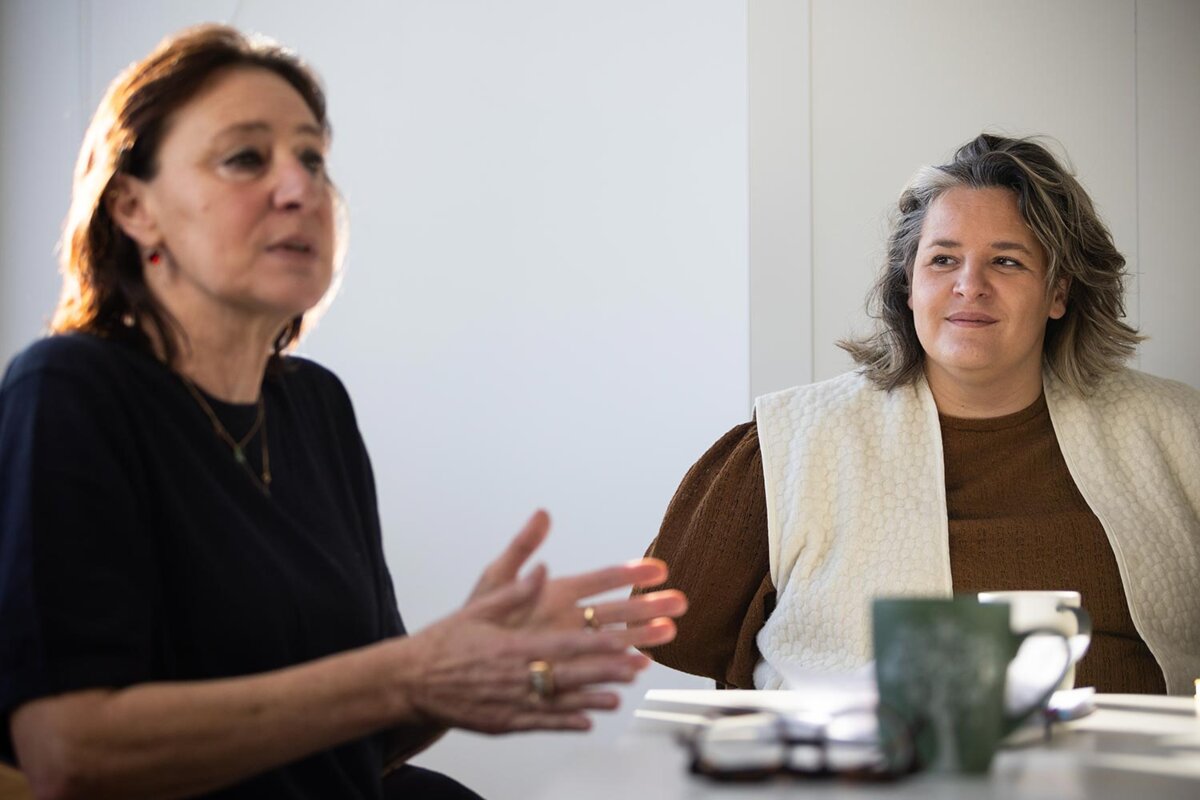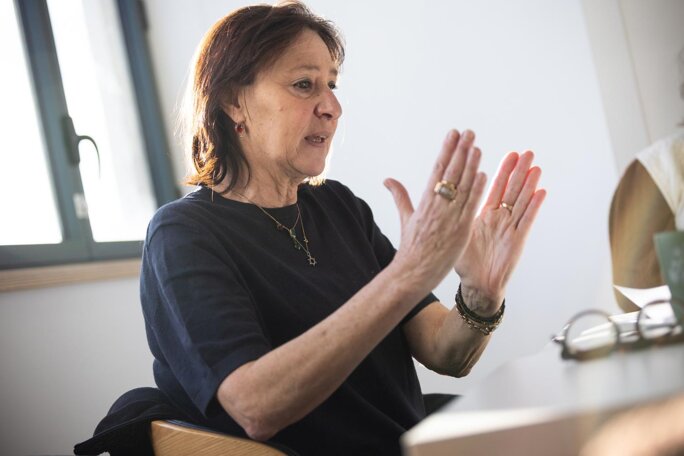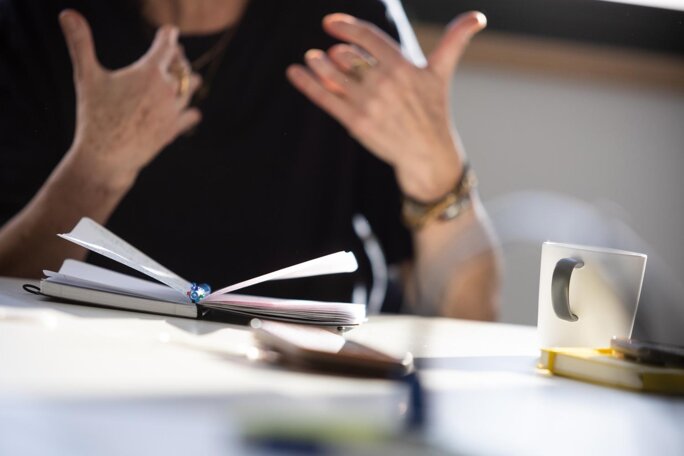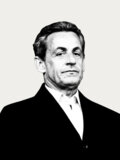On September 19th 1989, a McDonnell Douglas DC-10 operated by French airline UTA and carrying 156 passengers and 14 crew, took off from the Chadian capital N’Djamena on the final leg of its journey from Brazzaville, in the People’s Republic of the Congo, to Paris. Less than an hour later, as it flew above Niger, a bomb hidden in a suitcase exploded in the cargo hold, causing the aircraft to break up and crash in the Ténéré region of the Sahara. There were no survivors.
Among the 54 French passengers onboard the flight was the brother of Danièle Klein, and among the 14 crew was the air hostess mother of Yohanna Brette. Now, 35 years later, the event that changed the course of their lives, for which the regime of the late Libyan dictator Muammar Gaddafi was solely responsible, is to feature at the heart of a historic trial opening next month in Paris.
Beginning on January 6th, former French president Nicolas Sarkozy and three of his ministers will appear in court on corruption charges related to the alleged funding by the Gaddafi regime of Sarkozy’s 2007 presidential election campaign. The marathon trial, unprecedented in both the nature of the charges and the profiles of the defendants, who number 13 in all, is expected to last until April 10th.
The French public prosecution services and the investigating magistrates leading the investigations into the alleged Libyan funding were particularly interested in the role played by Abdullah al-Senussi, Gaddafi’s brother-in-law and head of the dictator’s military intelligence services. In 1999, he was sentenced in absentia to life imprisonment by a Paris court after he was found guilty of being the principal organiser of the 1989 bombing of the UTA DC-10 airliner, and since that verdict he has been the subject of an international arrest warrant issued by France.
According to the findings of the investigations into the alleged Libyan financing of Sarkozy’s 2007 election campaign, Senussi was involved in secretly transferring funds from Tripoli to Sarkozy’s election campaign team. The judicial probe concluded that in return for the Libyan funds, the former French president and his entourage offered to have the international arrest warrant issued against Senussi overturned. Two of Sarkozy’s closest aides, Claude Guéant and Brice Hortefeux (who later separately served as his interior ministers), met secretly with Senussi in Tripoli in 2005, shortly before the alleged payments to Sarkozy’s campaign began.

Enlargement : Illustration 1

Along with 13 other relatives of victims of the DC-10 bombing, Danièle Klein and Yohanna Brette decided to become civil parties (plaintiffs) to the Gaddafi-Sarkozy funding case, and will be in court as of January 6th. In the interview with Mediapart below, they explain why.
-------------------------
Mediapart: Why did you decide to take part in the trial that opens in Paris on January 6th?
Danièle Klein: It’s a process. Thirty-five years ago, the DC-10 families were numerous, mobilised. Then, around the years 2000, once the trial about the attack had passed, the families returned, [and] decided to distance themselves a bit from all that. And that’s completely normal. But a section of us continued the action by creating and running the French Association of Victims of Terrorism*, which is today party to many trials.
The marking moment was with the first revelation by Mediapart about the Gaddafi-Sarkozy-Senussi negotiations. We were really taken aback. First of all we waited, and then the justice system took it up. And for us, it all started up.
These revelations had a lot of resonance for us, because they reminded me of the memory of the presence of Nicolas Sarkozy, when he was still a minister, at commemorations held at the Invalides [Editor’s note; the military monument, hospital and administrative complex in central Paris], coming over to see us off-camera, shaking our hands, telling us he’ll always be alongside us, that he would support us.
So, what motivates our action is something of a feeling of betrayal. Because there are people who believed in it, who are today deceased – my grandfather, my uncle, people who are close – and who said to themselves that ‘we are faced with politicians who will support us, who have confidence in the justice system, who give us confidence in what could happen for the best in a judicial manner’. It revives painful things. We cannot not go there. A terrorist attack is not something one forgets.
Mediapart: Where were you on September 13th 1989, the day of the bombing of the plane?
D.K.: I was at the Beaubourg [Pompidou] centre in Paris for a press conference that I was organising. It was in an isolated environment, there were no mobile phones. It was when I returned home, at 1 in the morning, that I saw the number of messages on my voicemail machine and I understood that there was something not right. No-one had been able to reach me.
My brother’s plane had disappeared. It was real suspense because we still thought that it could have landed in the desert, that it was possible to find it.
I remember an expert who had said that there were perhaps some injured people in the desert, and that it was feared that the injured could fall prey to wild animals. The waiting lasted until dawn. It was the next day that we knew that the plane had crashed. There was talk of an accident, obviously, not a terrorist attack. The scenario of an attack was totally improbable. But quite rapidly, a few days later, experts concluded there had been an attack.
Yohanna Brette: I don’t remember. I was aged exactly one year and six months and four days when it happened. My mother was an air hostess on board the DC-10. I was with my nanny. It took my family, who didn’t know precisely where I was, three days to find me. There was even a doubt raised that I could have been on the plane. The story of the DC-10 is my whole life. I did not have a ‘before’ the DC-10 [bombing].
Mediapart: How did you live through the trial in 1999 in absentia of the accused Libyans, and notably the principle one among them, Abdullah al-Senussi?
D.K.: The trial lasted three days. The accused weren’t there and the place for [the families of] the victims was completely different at the time. Today there is an accompaniment, support, a place given to victims of terrorism. They are regarded as important in their analyses of the events, and within the trial itself. At the time, that was not the case.
We [faithfully] followed behind the president of the association [representing victims of terrorism] SOS Attentats, Françoise Rudetzki, for whom we had unlimited admiration, but who also did not [address the court]. The place of the victim was not that of somebody who spoke out, who had demands and questions. But we were satisfied that the trial had taken place. In a certain way, we had won.
Y.B.: My first recollections date from the trial. I was at primary school at the time and, honestly, I think that I heard for the first time the phrase ‘terrorist attack’ at school. Within my family, there was a will to protect me, which worked quite well for me. It allowed me to reconstruct myself. Because the bomb attack devastated all my family. I was looked after by 11 different households between the ages of one-and-a half and 14. It was a destruction of absolutely enormous proportions.
Mediapart: Following the trial, between 2002 and 2003, you took to demonstrating on each occasion of a visit to Paris by a Libyan official. Why?
D.K.: For a moment, we had hoped that Gaddafi could be tried in Paris [Editor’s note; a formal complaint had been lodged to bring about such a trial]. And then the justice authorities decided that this was not possible.

Enlargement : Illustration 2

We were a small group, a very small group of three or four families who had decided to take up a more offensive battle, distancing ourselves a little from Attentats. We saw the Libyans return to Paris regularly, and when we were informed we took out our cardboard placards, with the photos of the DC-10 victims, and we went to stand in front of their hotels, in front of the Libyan consulate, or when the Paris-Tripoli [air] route was opened. And then there was the visit to Paris of Saif al-Islam Muammar Gaddafi [Editor’s note; the second son of dictator Muammar Gaddafi] for an art exhibition.
Mediapart: Guillaume Denoix de Saint-Marc, whose father was killed in the bombing of the DC-10 approached Gaddafi’s son who proposed a meeting.
D.K.: Yes, that direct contact took place.
Mediapart: You made it known that the indemnities established at the trial were derisory, and the Libyans accepted the idea of discussing the issue.
D.K.: That they should accept the principle of paying us indemnities was very important to our way of thinking, because that meant that they were guilty. Through these negotiations, we took back control of our destiny. It was a very powerful moment, very repairing and very tense as well. In the summer of 2023, everything speeded up [Editor’s note; Guillaume Denoix de Saint-Marc travelled to Libya with his wife and a cousin who was a lawyer].
We understood also that the Americans and the British were negotiating to obtain very large indemnities. But we were never in the state of mind to demand the maximum. The negotiation was also to make known, more clearly, the responsibility of Libya in the attack. And it must be said that even in the final document of 2004 [Editor’s note; an agreement for the payment by Libya of 1 million euros to each victim’s family] there were flaws; there was talk of ‘the accident’. The responsibility of Libya in the bombing has always been ridden around. It has remained an open wound.
It was for me extremely violent to have to monetize our pain. To put a sum upon it.
Y.B.: It was for me extremely violent to have to monetize our pain. To put a sum upon it. I was a teenager at the time of these negotiations. They were explained to me by saying ‘it is to protect you, it’s for your future’. But I didn’t want it. It didn’t correspond with who I am. And it’s important for me to say today that being a minor, I wasn’t asked for my opinion.
Mediapart: And it was just three years later, in 2007, that Nicolas Sarkozy, shortly after his election as French president, hosted Muammar Gaddafi on an official visit to Paris. What do you remember about that?
D.K.: The day that Gaddafi was welcomed in France we got our placards back out. It was difficult to admit that the [French] Republic went about doing so much for that man. It was a bit like the preparation for action for us. And the last day of Gaddafi’s [five-day] visit to Paris, Sarkozy asked to see us. He told us: ‘You know, politics is not so simple’, and then ‘What do you want? Tell me what you want.’ He answered all our requests favourably; to travel to the scene of [the debris from] the bombing; the administrative management of the cases of families who had not been indemnified. Jean-Daniel Levitte, his diplomatic advisor, wrote down everything in a notebook. And we left the meeting, which had lasted about an hour, feeling peacefulness.
Mediapart: And now, in the light of the judicial investigations, do you now interpret that moment differently?
D.K.: I never stop thinking about it. I find it difficult to believe. Knowing that the judicial authorities speak today about a deal with those people [the Gaddafi regime], that he received us and told us that we were wonderful people –whereas he had perhaps received money to be in that position, in the green salon of the Élysée [Palace], if that’s the truth I find it is of an extreme cynicism. And it is for that that we must understand, and to go this trial, to know what happened. Because that moment, which reconciled us a little bit with this story, was perhaps, in the end, totally rubbish.
Mediapart: According to the judicial investigations, two people close to Nicolas Sarkozy – Claude Guéant and then Brice Hortefeux – secretly met, in the space of three months in 2005, Abdullah al-Senussi, who was then wanted by France for his role in the DC-10 bombing. What is your reaction to that?
D.K.: Anger. Anger over the feeling that I have of being treated with contempt. It is contempt for the DC-10 families, contempt for international arrest warrants, contempt for the links of potential reconstruction between Libya and France. Two centre-stage politicians meet with a tried and convicted international terrorist. I have the impression that the measure of that has been missed. To dare do that is crazy.
Mediapart: Again according to the judicial investigation, Nicolas Sarkozy’s team went about finding ways to overturn the international arrest warrant issued by France against Abdullah al-Senussi. The investigating magistrates concluded this was possibly in return for the Libyan illegal funding of Sarkozy’s 2007 election campaign. What is your reaction to that?
D.K.: I still can’t take that in. I cannot even imagine it. How could they, morally, enter into that? To say to themselves, ‘I might go and try to work on the idea of finding a solution around Senussi’? We’re talking about an international terrorist, who is at the origin of the biggest mass terrorist attack against France, because there were more deaths [then] than on November 13th 2015, and god only knows that the November 13th attacks traumatised all of us. Of course, time has been at work, 1989 is distant. But it remains that there has never been a terrorist attack that claimed as many victims in order to punish the French state.

Enlargement : Illustration 3

Why is it that at a given moment those people didn’t say to themselves ‘No, I’m stopping, I can’t go there’? It’s a question.
It is really a contempt for civil society, the victims of the bombing, the victims’ families, the airline crew, the military personnel sent to the scene to retrieve the debris from the plane. Really, there is respect for nothing other than money.
Mediapart: At the time of the revelation of how Nicolas Sarkozy’s lawyer, Thierry Herzog, intervened in favour of Senussi, Mediapart reported that, according to Libyan documents, Herzog travelled to Tripoli accompanied by Francis Szpiner, the lawyer who represented SOS Attentats during the 1999 trial of Senussi in absentia. Szpiner denied making the trip with Herzog. You had reacted strongly to that. In retrospect, what are your thoughts on the matter now?
D.K.: It seemed grotesque to me. When he was in charge of the case for SOS Attentats, we followed him in all confidence. He was a great guy. And it’s for that that I still pray in the hope that it is untrue, that he did not do that. I don’t feel hatred, I don’t have anything against him, but I hope it’s untrue.
Mediapart: Thierry Herzog was very virulent when, last March, your lawyers announced that you were to be civil parties at the Libyan funding trial. He notably tried to disqualify your move on the basis that because an agreement for indemnities was signed 20 years ago you could not take part in court. What is your opinion on that?
Y.B.: I felt that his comments were, honestly, a small victory. If by constituting ourselves as civil parties that prevents them from sleeping two or three nights, all the better. It means we’ve hit on something that’s a little sensitive. Moreover, he hasn’t understood why we established ourselves as civil parties.
We’re not going there for money, and neither are we going there for glory. We are going there for justice and truth. What we complain about today is that there was a will to whitewash a man whose guilt was recognised, who is the subject of an international arrest warrant. There is no reason that we could be disqualified because of this indemnity agreement.
D.K.: We began just the two of us and now we number a good 15, all the same. We are a true group, and it’s not some hare-brained idea, nor an exotic move. We are quite certain about what we are doing. We are very confident, and we’re not afraid.
Mediapart: You have opened an online appeal for donations to help you meet your lawyers’ fees and the cost of the necessary logistics to allow you to have a constant presence at the trial.
D.K: Yes. We want to inform the families of the victims of the DC-10, and to be the most present as possible. The defendants will be faced with determined people, who are there for the cause of honour, memory, recollection, and the future, too. And also to stand up a bit for citizens. The appeal for funds has been opened because the trial lasts a long time, and that justice is not free.
We imagine that the financial means of those opposite are quite superior to ours. And one has to work with lawyers who are up to the job and are specialists on these subjects. The question of lawyers’ fees is raised. We also have to ensure the logistics for families who are going to attend, sometimes [travelling] from the provinces, and [deal with] the psychological impact that this trial risks having. This appeal for funds is vital for us.
*L’Association française des victimes de terrorisme (AFVT).
-------------------------
- The original French text of this interview can be found here.
English version by Graham Tearse



